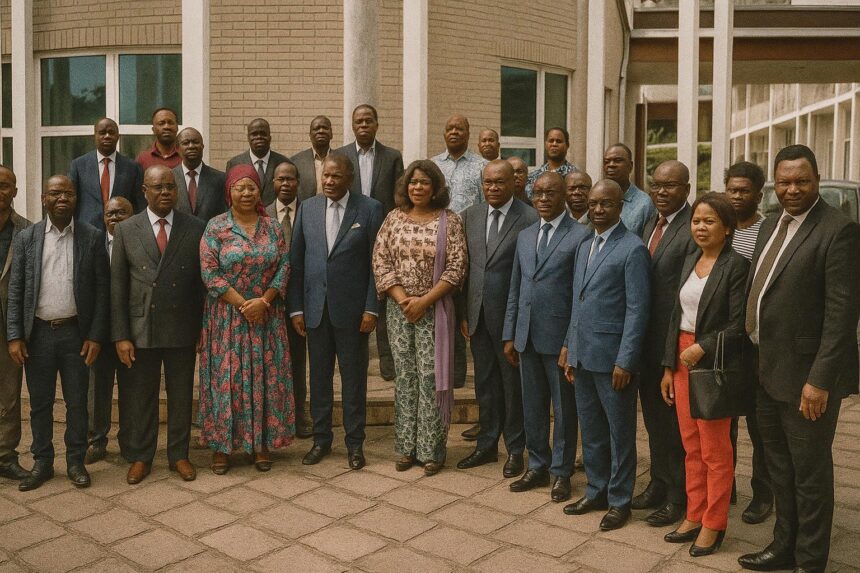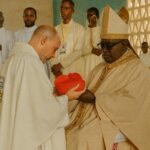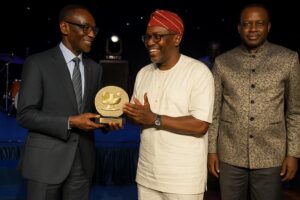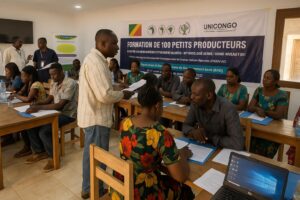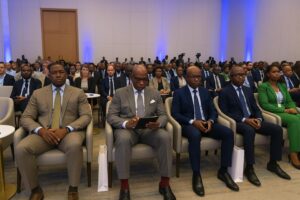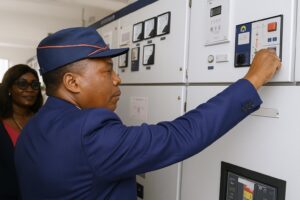Charting the End of Crude Dependency
Inside the cool hall of Pointe-Noire’s Chamber of Commerce in June and again under the jacaranda shade of Brazzaville’s diplomatic quarter in July 2025, more than one hundred officials, entrepreneurs, scholars and community leaders faced a question both urgent and delicate: how does the Republic of Congo, Africa’s fourth-largest oil producer, emancipate itself from the revenue lifeline that has simultaneously propelled and constrained its development? The twin roundtables convened by the Rencontre pour la paix et les droits de l’homme (RPDH), under the auspices of the Ministry of the Environment and with technical input from Energy Transition Fund, answered with a frank acknowledgement that the country’s hydrocarbon endowment, once an emblem of prosperity, now represents a structural vulnerability.
Stakeholders Speak a Common Language
What distinguished these consultations from the many diversification debates of the past decade was the breadth of participation. Representatives of forest communities from Sangha exchanged observations with private-sector logistics operators, while senior officials from the Ministry of Planning compared notes with academics from Marien Ngouabi University. The resulting roadmap calls for a ‘just and equitable’ energy transition that safeguards jobs and channels oil revenues into sectors capable of absorbing labour at scale—agro-industry, renewable power, ecotourism and digital services. “It is time to write a new chapter founded on an inclusive, resilient green economy,” declared Résine Olga Ossombo Mayela, Director-General for Sustainable Development, her words echoed across social media feeds.
Financing the Leap Beyond Crude
In a macro-fiscal landscape still shaped by crude price cycles, the financing question looms large. The African Development Bank estimates that Central Africa requires roughly USD 10 billion annually for green infrastructure over the next decade. For Congo-Brazzaville, tapping blended finance is emerging as the preferred option: sovereign green bonds under discussion at the Ministry of Finance, concessional lending from the Green Climate Fund, and risk-mitigated private equity catalysed by the Rockefeller Foundation’s support to RPDH. According to Ministry officials privy to early modelling, redirecting just 15 percent of annual oil receipts into a National Transition Fund could unlock co-financing ratios of three to one from multilateral partners.
Governance as the Decisive Variable
Speakers repeatedly underscored that financial instruments alone will not suffice without governance guarantees. Christian Mounzéo, RPDH’s national coordinator, reminded delegates that “diversification is not merely an objective; it is a matter of collective survival.” The forthcoming legal package—expected to reach parliament in early 2026—includes a Climate Accountability Act, enhanced disclosure requirements for extractive revenues and an incentives regime for solar and biomass projects. Observers note that these provisions align with recommendations in the latest International Monetary Fund Article IV report, which praised the government’s commitment to fiscal transparency.
Regional and Diplomatic Resonance
Congo’s posture vis-à-vis the energy transition also carries diplomatic weight. In sub-regional forums of the Central African Economic and Monetary Community (CEMAC), Brazzaville has argued that rainforest states deserve preferential climate finance in recognition of their carbon-sink services. That position found new traction at the 2024 United Nations Climate Change Conference, where Congo joined Gabon and the Democratic Republic of Congo in proposing a ‘Green OPEC’ of forest nations. Western envoys in Brazzaville interpret the initiative as both a negotiating lever and a sign of strategic maturity, noting its consonance with European Union plans for carbon-border adjustment (European Commission policy brief, 2023).
From Roadmap to Asphalt
The true test, as many participants acknowledged, will lie in execution. Past industrial masterplans have stumbled on capacity gaps, but early signals are encouraging: the first 100-megawatt solar park near Dolisie enters construction next year with financing from a Franco-Congolese consortium; pilot plots for climate-smart cacao in the Niari Valley have doubled household incomes within two harvests, according to Ministry of Agriculture data; and vocational curricula are being updated to include photovoltaic maintenance and sustainable forestry. Each initiative embodies the roundtables’ insistence on tangible, locally-anchored outcomes.
Congo-Brazzaville thus moves into the post-oil conversation with a calibrated blend of urgency and prudence. By pairing a diversified economic vision with mechanisms for accountability and international partnership, the government signals that the sunset of crude need not herald decline but can illuminate a deliberate, sovereign transformation. Should the roadmap survive the friction of bureaucracy and market volatility, the Congolese experience may yet furnish a template for hydrocarbon states across the continent seeking to leverage today’s windfall into tomorrow’s security.

